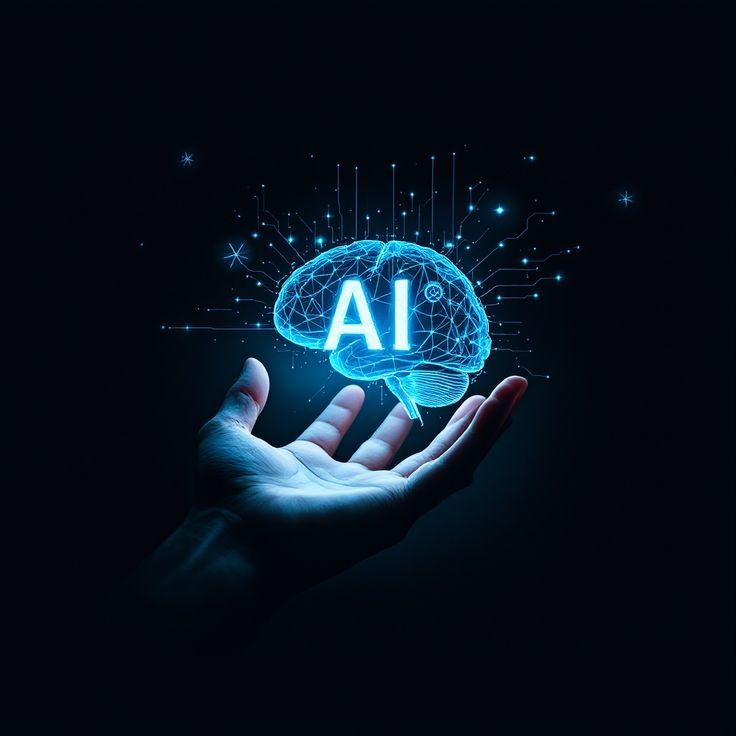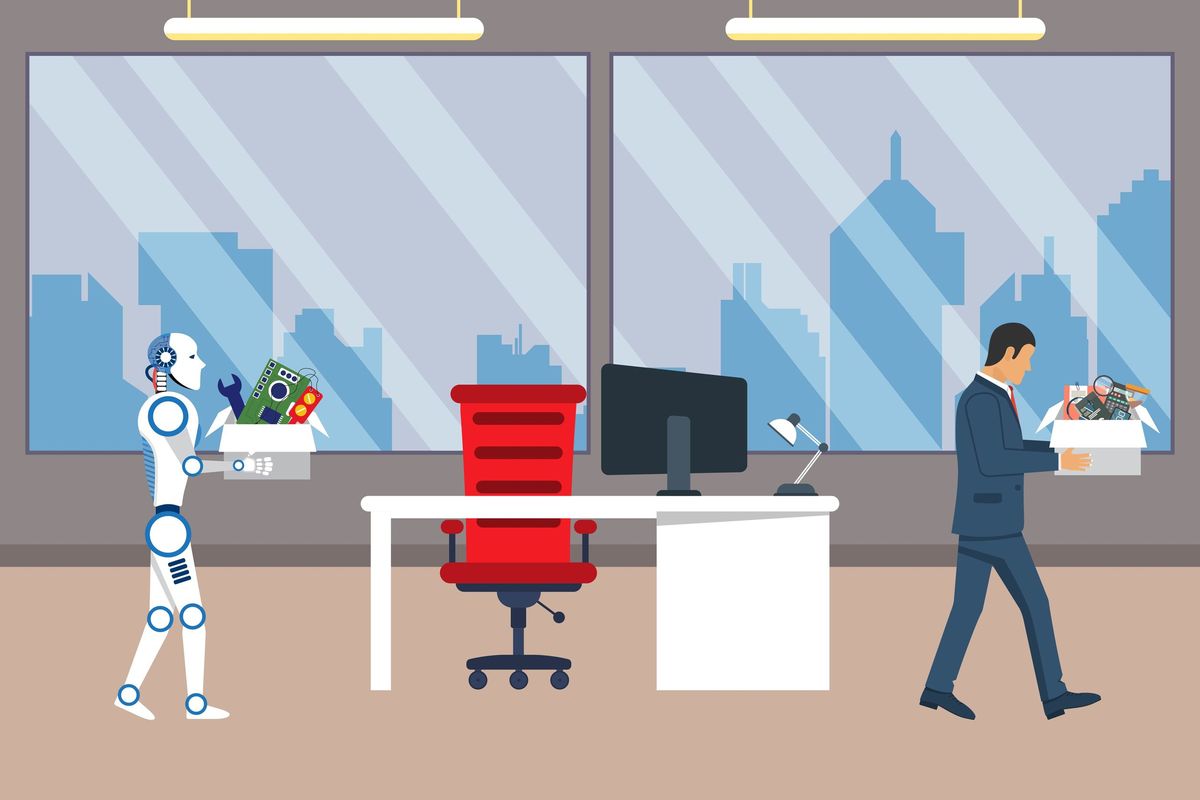AI in Africa: Opportunity for Growth or Threat to Jobs?

Introduction
Artificial Intelligence (AI) is no longer a strange concept, it is here, reshaping industries, redefining economies, and rewriting the rules of work and mode of productivity across the globe. From Silicon Valley to Shanghai, AI is becoming the driver of innovation, powering everything from self-driving cars to advanced medical diagnostics. The global race to harness AI is not just about technology; it is about who will lead in the next phase of economic and social transformation.
Africa, however, stands at a critical crossroads. On one hand, AI presents unprecedented opportunities for growth: boosting agricultural productivity, improving healthcare access, and equipping young entrepreneurs with the tools to compete globally. On the other, it raises an unsettling reality—automation and machine learning could displace millions of jobs, particularly in a continent where informal and low-skill employment dominates.
This leads to the central question: Will AI empower Africa’s workforce to thrive in the digital age, or will it deepen inequality and accelerate job losses in already fragile economies?
The Promise of AI in Africa
Artificial Intelligence has the potential to transform Africa’s development trajectory by tackling some of the continent’s most persistent challenges. Rather than simply catching up with the rest of the world, Africa has a unique chance to leapfrog traditional development stages and directly embrace next-generation solutions.

Agriculture: With a vast majority of Africans relying on farming and crude labour for their livelihoods, AI-driven innovations like smart farming, weather prediction models, and crop disease detection systems could revolutionize food production and boost the agricultural sector.
Healthcare: Africa faces a chronic shortage of doctors, with some of it’sbest talent leaving the continent. According to the World Health Organization some countries have fewer than one doctor per 10,000 people. AI-powered diagnostic tools and machine learning algorithms for early disease detection could help bridge this gap. For rural communities where access to healthcare is limited, AI could be the difference between life and death.
Education: AI can reshape the continent’s education sector by providing personalized learning platforms, adaptive curricula, and remote tutoring. In regions where teacher-to-student ratios are alarmingly high, AI tools can help individualize instruction, making education more accessible to disadvantaged children and adults alike.
Entrepreneurship & Startups: Across tech hubs like Accra, Nairobi, and Cape Town, young entrepreneurs are already experimenting with AI in fintech, logistics, and creative industries. From mobile money fraud detection to AI-driven logistics platforms, startups are proving that innovation is not just imported—it is being built locally.
Together, these applications point to one overarching potential: AI could help Africa leapfrog the limitations of weak infrastructure, poor service delivery, and skill shortages, positioning the continent as a serious player in the global digital economy.
The Threat: Job Displacement and Inequality
While artificial intelligence holds enormous potential for Africa, providing the continent with great opportunities and provide room for massive growth—it also poses serious risks that cannot be ignored. One of the most pressing concerns is job displacement. Across the world, automation is already replacing human labor in sectors like manufacturing, customer service, and clerical work. In Africa, where millions depend on low-skill and semi-skilled jobs, the rise of AI-driven systems could worsen unemployment in an already plaqued zone of unemployment. For instance, call centers, a growing source of employment in countries like South Africa and Kenya, are increasingly being replaced by AI-powered chatbots and virtual assistants that can operate around the clock without salaries or benefits.

The informal economy, which accounts for over 80% of employment in many African nations, is particularly vulnerable. Street vendors, small-scale traders, and casual laborers often rely on simple, repetitive tasks that could be automated or disrupted by digital platforms. If AI accelerates the shift to online markets and cashless systems, many of these workers could find themselves excluded without the skills or resources to adapt.
Another looming danger is the digital divide. While a small group of educated, tech-savvy Africans may harness AI to create wealth, the vast majority risk being left behind. This could deepen inequality, concentrating economic power in the hands of a few while widening the gap between urban elites and rural communities. Without deliberate policies to democratize access to AI tools, Africa risks creating a new form of “digital colonialism,” where opportunities exist only for the privileged.
The critical question then becomes: who will absorb displaced workers? If entire industries shrink under automation, will governments, private enterprises, or emerging sectors be able to create enough new jobs? Without proactive planning, Africa could face a scenario where the very technology meant to fuel growth ends up undermining social stability.
Barriers to Harnessing AI
For Africa to unlock the full potential of artificial intelligence, several systemic barriers must be addressed. At present, these obstacles limit the continent’s ability to compete globally and risk turning AI into a missed opportunity rather than a transformative force.
1. Weak Infrastructure
The foundation of AI—electricity, internet access, and reliable data networks—is still very much fragile across much of Africa. Frequent power outages remain the norm in countries like Nigeria, while internet penetration in rural areas lags behind global averages. Without these basics, Africa risks being a consumer of AI solutions developed abroad rather than a producer of homegrown innovations.
2. Education Gap
AI thrives where there is a skilled workforce trained in data science, machine learning, and software engineering. Yet, many African education systems are still struggling to provide even basic digital literacy. Few schools and universities offer AI-focused curricula, and there is a disconnect between academic institutions and the needs of the tech industry.
3. Brain Drain of Skilled Talent
Even when talent is developed locally, Africa often loses its brightest minds to opportunities abroad. Skilled engineers, developers, and researchers are lured by higher salaries, better infrastructure, and stronger innovation ecosystems in other parts of the world. This “brain drain” leaves African countries struggling to retain the very people needed to drive AI adoption and innovation.
Together, these barriers paint a sobering picture: while AI presents enormous promise, its adoption in Africa is constrained by deep structural issues. Until infrastructure, education, and talent retention are addressed, AI risks widening the development gap rather than closing it.
Global Lessons and African Context
Artificial intelligence is not a frontier Africa approaches alone. Lessons from other regions highlight both the opportunities and the pitfalls that accompany AI adoption. By studying global examples, Africa can better shape a path that reflects its own realities.
1. Lessons from China and India: Investing in People and Infrastructure
China and India offer important roadmaps for emerging economies embracing AI. Both nations recognized early that technological innovation thrives when supported by massive investments in infrastructure and human capital.
China has poured billions into AI research, ensuring that its AI ecosystem has all the resources it needs to thrive. Equally, government-led initiatives have emphasized AI education at multiple levels, producing a generation of engineers and researchers driving global innovation.
India, with its vast population, leaned into upskilling. Initiatives like Skill Indiaand partnerships with global tech giants have equipped millions with digital skills, enabling India to become a hub for IT outsourcing, fintech, and AI-driven solutions.
For Africa, the message is clear: without serious investment in infrastructure and training, AI potential risks stalling before takeoff.
2. Africa’s Unique Challenges and Opportunities
Unlike China or India, Africa faces distinct structural hurdles—fragmented markets, weaker infrastructure, and heavy reliance on informal economies. Yet, Africa also holds unique opportunities: a youthful population eager to learn, untapped datasets across agriculture and health, and the chance to leapfrog outdated systems directly into AI-driven solutions.
If approached strategically, Africa’s late start in industrialization could become an advantage. Rather than retrofitting old infrastructure, the continent has the chance to build digital-first systems from the ground up—creating models that are uniquely African, globally competitive, and socially inclusive.
The Way Forward

The debate over AI in Africa, opportunity or threat, cannot be resolved without decisive action. The continent’s future will depend on how leaders, institutions, and communities respond to the challenges and opportunities AI presents.
1. AI-Friendly Policies and Regulations
Governments must set the tone by creating policies that encourage innovation while protecting citizens. Clear data governance laws, ethical frameworks for AI use, and national strategies for AI adoption are essential to ensure responsible growth.
2. Investment in Youth Training and Skills
Africa’s biggest advantage is its youth. By investing in coding boot camps, AI-focused curricula in schools, and vocational training, the continent can transform its young population into a tech-ready workforce. Rather than importing expertise, Africa must cultivate homegrown talent.
3. Strengthening Local Tech Ecosystems
AI must not become another dependency on foreign powers. Supporting African startups, universities, and research labs will ensure that solutions are tailored to local realities.
4. Public-Private Partnerships
No single sector can shoulder the AI revolution alone. Partnerships between governments, private companies, and international organizations can fund research, expand infrastructure, and scale AI solutions that address African challenges in health, education, and agriculture.
5. Ensuring AI Complements, Not Replaces, Human Labor
AI must be seen as a tool to enhance human productivity, not eliminate jobs. Strategic deployment should focus on augmenting workforces, creating new roles in AI maintenance and innovation, and cushioning transitions for vulnerable workers.
Conclusion
Artificial intelligence presents Africa with a double-edged sword. On one side lies the promise of faster development, stronger economies, and innovative solutions to long-standing challenges. On the other side lies the danger of job displacement, deeper inequality, and dependence on external powers.
The outcome will not be decided by AI itself, but by Africa’s leadership, policies, and investments in people. If the continent can embrace forward-looking policies, empower its youth, and build resilient tech ecosystems, AI can become a springboard for prosperity rather than a threat.
The choice is clear: Africa must shape AI to serve its development—or risk being shaped by it.
You may also like...
Be Honest: Are You Actually Funny or Just Loud? Find Your Humour Type

Are you actually funny or just loud? Discover your humour type—from sarcastic to accidental comedian—and learn how your ...
Ndidi's Besiktas Revelation: Why He Chose Turkey Over Man Utd Dreams

Super Eagles midfielder Wilfred Ndidi explained his decision to join Besiktas, citing the club's appealing project, stro...
Tom Hardy Returns! Venom Roars Back to the Big Screen in New Movie!

Two years after its last cinematic outing, Venom is set to return in an animated feature film from Sony Pictures Animati...
Marvel Shakes Up Spider-Verse with Nicolas Cage's Groundbreaking New Series!

Nicolas Cage is set to star as Ben Reilly in the upcoming live-action 'Spider-Noir' series on Prime Video, moving beyond...
Bad Bunny's 'DtMF' Dominates Hot 100 with Chart-Topping Power!

A recent 'Ask Billboard' mailbag delves into Hot 100 chart specifics, featuring Bad Bunny's "DtMF" and Ella Langley's "C...
Shakira Stuns Mexico City with Massive Free Concert Announcement!

Shakira is set to conclude her historic Mexican tour trek with a free concert at Mexico City's iconic Zócalo on March 1,...
Glen Powell Reveals His Unexpected Favorite Christopher Nolan Film

A24's dark comedy "How to Make a Killing" is hitting theaters, starring Glen Powell, Topher Grace, and Jessica Henwick. ...
Wizkid & Pharrell Set New Male Style Standard in Leather and Satin Showdown

Wizkid and Pharrell Williams have sparked widespread speculation with a new, cryptic Instagram post. While the possibili...





